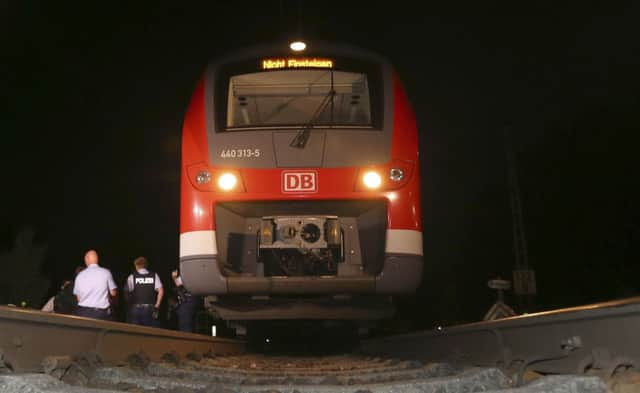Lobbying begins for UK farmers


When that happens you get the chance to think laterally, and that was the case last week as I headed through France from Paris to Lyon. That is a journey of close to 350 plus miles, which in a super-fast French train is an impressive two hours. For that entire distance we were never out of sight of huge arable fields, stretching as far as the eye could see and with the harvest in full swing. This is farming on an enviable scale – and it was only in the final few miles into Lyon that there was any evidence of livestock farming.
As I watched this endless ribbon of agriculture pass the window at 180 miles an hour on the TGV it was proof of why agriculture is so important in France. It is still a very rural country and its politicians are never allowed to forget that. But where my mind went was to how losing our link to this powerful lobby will impact agriculture here when we leave the EU. For years we have complained about, but secretly envied, the ability of French farmers to block imports and break EU regulations with apparent impunity. At the same time we have gained from how they force farming up the agenda in Brussels. In successive CAP negotiations France drove the final deal. Much as our own UK government did not like the outcome, it had no options other than to implement EU policy.
Advertisement
Advertisement
That situation is now just about over. We will remain members of the EU for some years to come, but will play no part in decision making. This is akin to those final weeks in school after exams are finished, when you go through the motions of turning up, but do not really do anything. For the CAP we still have to abide by the rules, but have no interest in the issues that are important to the other 27 EU member states. Examples this week were future climate control regulations, the agri markets task force on the weakness of farmers in the supply chain and future CAP simplification. These are now no longer relevant to the UK. But there has been no engagement yet about replacements for these and the hundreds of other measures, from intervention to product promotion, that are driven by Brussels, and influenced by the might of the French, German and Irish farming lobbies.
My train journey underlined that with Brexit farming will have to stand on its own feet in the UK. This new freedom from the CAP is what people wanted with Brexit, and if straw polls are right it is what farmers voted for. In doing so they obviously felt they could indeed find a new future without that European backing through COPA and other organisations. When Brexit is complete the UFU and the other UK farm lobby organisations will have to leave COPA. This will be a mutual blow, since the UK farm unions have added a lot to it and other bodies over the years they have been involved.
Instead the influence of the farming lobby will have to be at Westminster, and if the industry is to find a successful way ahead outside the EU Andrea Leadsom, the DEFRA minister, will need to change her views. She has not yet said anything meaningful about farming, but her past comments were around British farmers not needing subsidies, and in particular ending support for the hills in favour of environmental policies. This shows a dangerous lack of knowledge of both agriculture and the environment and it underlines the scale of lobbying that will be needed.
When canvassing for Brexit those calling for it, led by Owen Paterson, promised that decision making on agriculture would be devolved to the regions. There have been no comments on that since the referendum, but before that can happen the Treasury has to agree a level of post-CAP funding for agriculture. Then the decision has to be taken to devolve decisions. The problem is that Westminster has little interest in agriculture. The UK is now a society driven by urban interests, in contrast to France where farmers have maintained their political clout.
We may yet rue that this is not the case in the UK, and could end up envying French farmers as much when we are outside the EU as we secretly did all the years we were members.